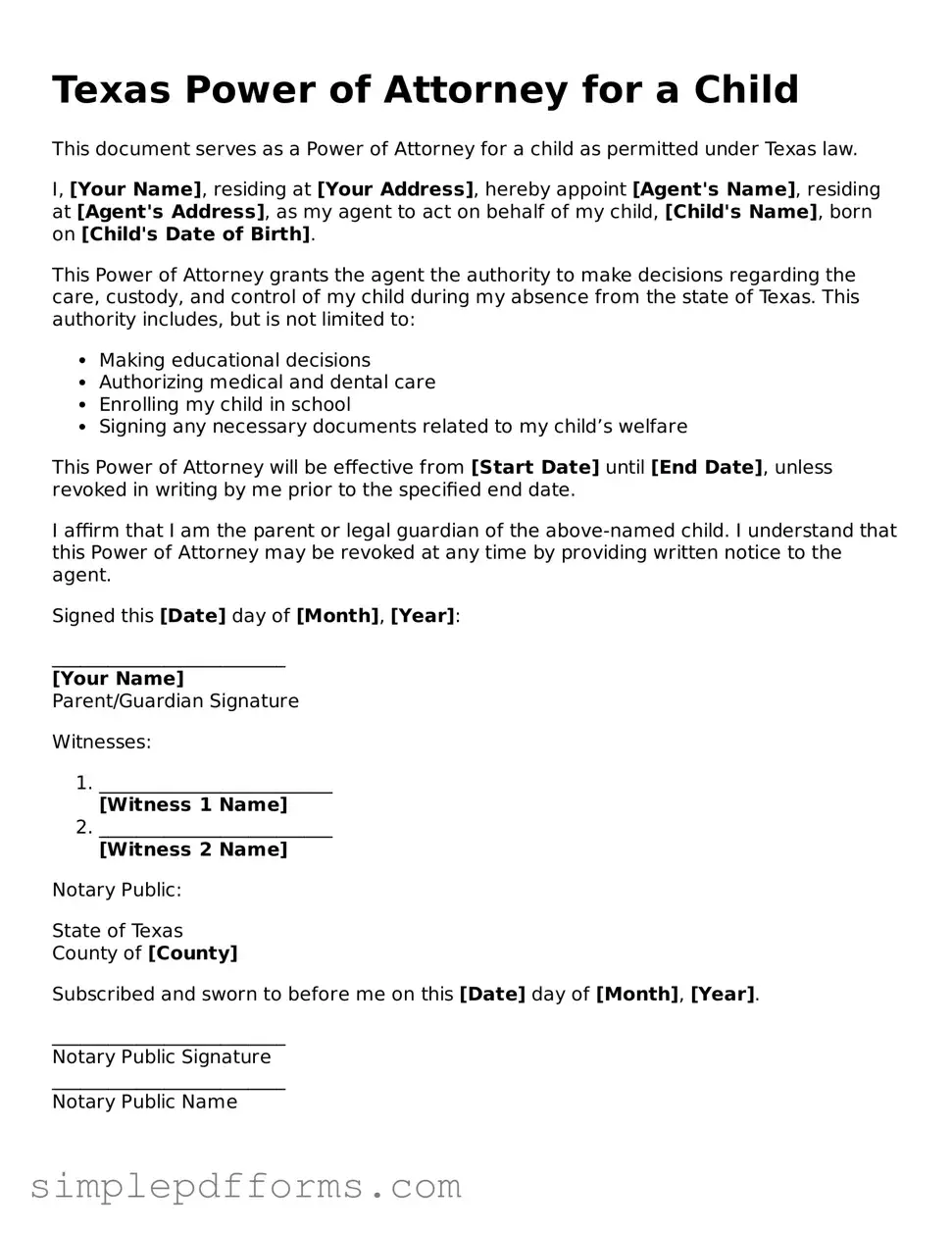Attorney-Verified Power of Attorney for a Child Document for Texas State
The Texas Power of Attorney for a Child form is a legal document that allows a parent or guardian to grant another individual the authority to make decisions on behalf of a child. This form is often used in situations where the parent or guardian is unable to care for the child temporarily. It is important to understand the rights and responsibilities that come with this arrangement.
Open Power of Attorney for a Child Editor Now

Attorney-Verified Power of Attorney for a Child Document for Texas State
Open Power of Attorney for a Child Editor Now

Open Power of Attorney for a Child Editor Now
or
Get Power of Attorney for a Child PDF Form
Your form is waiting for completion
Complete Power of Attorney for a Child online in minutes with ease.